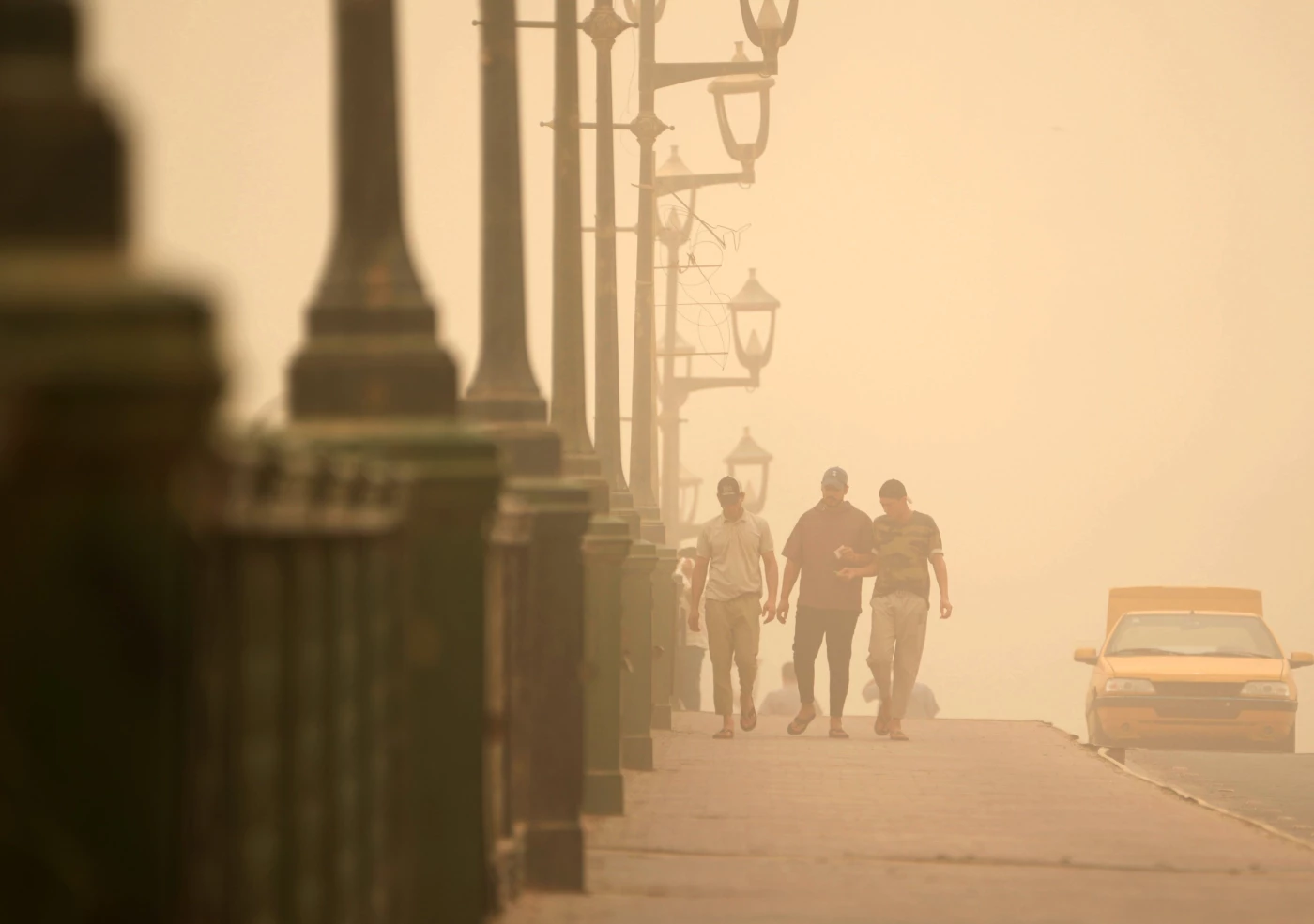DUBAI, UAE - A pervasive sulfur odor in Baghdad and nearby provinces has triggered widespread concern among residents in recent days, particularly in the southern district of Dora, where the fumes have been most intense. Citizens have raised concerns about the potential health risks and are urging authorities to investigate the source and take swift action.
Iraqi Prime Minister Mohammed Shia' al-Sudani responded to the mounting fears, issuing a statement directing a comprehensive study to “identify the sources of sulfur emissions and implement measures to reduce them.”
The environment ministry said in a statement that there was “no cause for alarm” and advised residents to “keep windows closed and limit outdoor exposure.” Despite the assurances, Ministry Spokesperson Luay al-Mukhtar acknowledged that the department had not yet identified the exact cause of the air pollution, telling The New Region that officials were “monitoring the situation closely.”
Environmental activist Jasim al-Asadi criticized the government’s slow response to the crisis, describing the environment ministry’s actions as “pathetic”. He emphasized the need for immediate intervention to address the sources of pollution and enforcing stricter environmental standards.
“Baghdad ranks as the most polluted city in the Arab world,” Asadi told The New Region, attributing much of the pollution to brick factories in southeast Baghdad and emissions from the Dora refinery. These facilities, he noted, release large quantities of sulfur dioxide and other harmful pollutants into the air.
Asadi also pointed to urban sprawl around the refinery, which has exacerbated the issue, putting thousands of residents at risk. He blamed random waste burning and inadequate filtration systems at industrial plants for further compounding the pollution crisis.
Asadi warned that direct discharge of wastewater from industrial facilities into the Tigris River threatens both water quality and public health, leading to contamination of surface water, groundwater, and soil.
“This combined air, water, and soil pollution poses a serious threat to human health,” he said, calling for immediate government action.
Ali Jaber, head of air quality monitoring at the Ministry of Environment, confirmed that air quality around the Dora refinery had worsened, especially during the seasonal transition between fall and winter. He attributed the issue to weather patterns, such as high humidity and stagnant winds, which trap pollutants closer to the ground.
Jaber also cited the ongoing construction projects that rely heavily on high-sulfur fossil fuels as a contributing factor to the pollution. Without proper emission control, the situation is likely to worsen, he said.
Baghdad ranks 13th globally among the world’s most polluted cities, and experts say that dust in Iraq contains 37 types of harmful minerals, as well as 147 strains of bacteria and fungi. Pollution levels of PM2.5, a dangerous particulate matter, have soared to around 39.6 micrograms per cubic meter, far exceeding the World Health Organization’s recommended limit of 5 micrograms per cubic meter.
The rise in air pollution has led to an increase in respiratory illnesses across the country, officials said.



 Facebook
Facebook
 LinkedIn
LinkedIn
 Telegram
Telegram
 X
X


